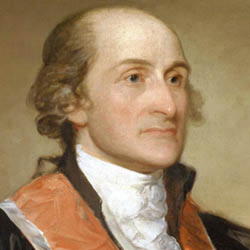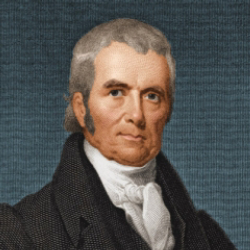Roger Brooke Taneywas the fifth Chief Justice of the Supreme Court, holding that office from 1836 until his death in 1864. He is most remembered for delivering the majority opinion in Dred Scott v. Sandford, that ruled, among other things, that African-Americans, having been considered inferior at the time the Constitution was drafted, were not part of the original community of citizens and, whether free or slave, could not be considered citizens of the United States, which created an uproar...
(wikipedia)
























